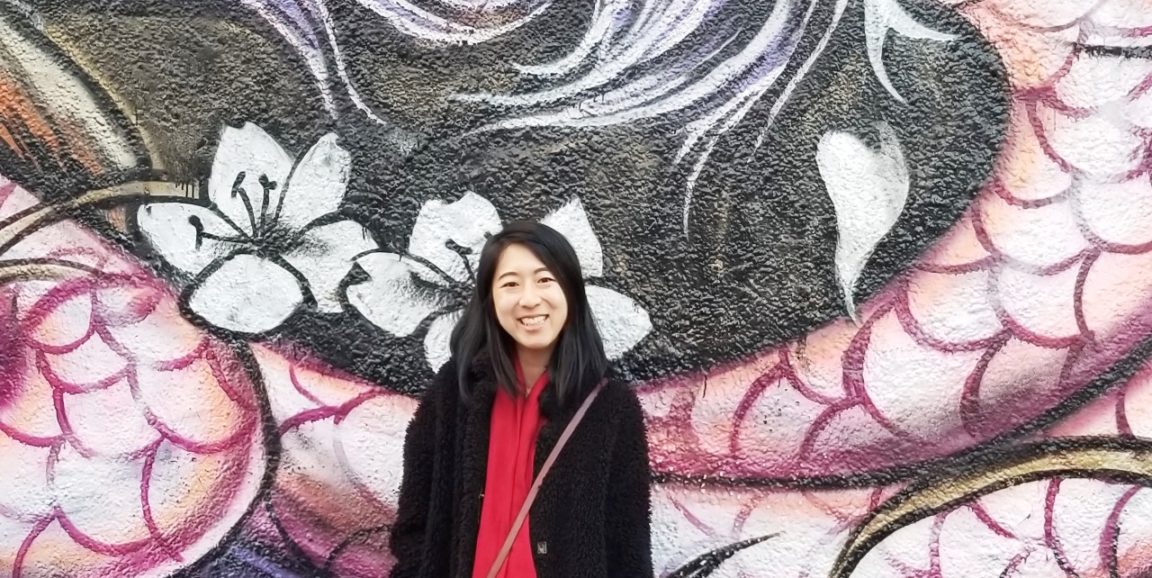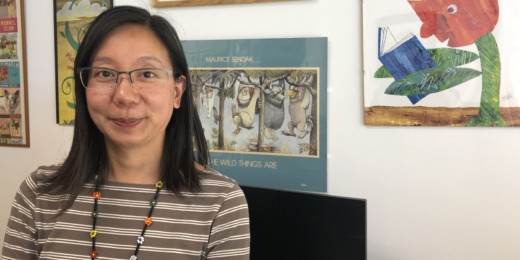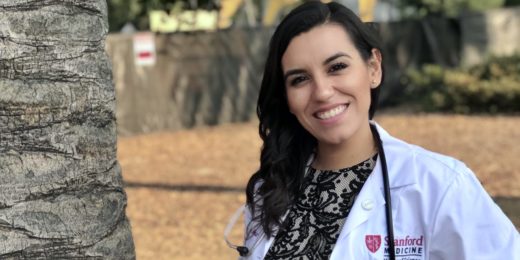Growing up, Grace Li spent so much time reading that her worried parents -- both cancer researchers -- consulted the school librarian. (The librarian was not concerned.) As she grew older, Li became hooked on the power of science and medicine to help people, but she never lost her love of words.
Now a first-year medical student at Stanford, Li wrote a short story, "Time Like Water," that received second place in Stanford Medicine's 2019 Paul Kalanathi fiction contest.
She talked with me about her current writing projects, how she finds time to write and why, as the daughter of Chinese immigrants, she wants to tell stories that reflect the Asian-American experience.
Tell me more about your writing.
I was a biology major and creative writing minor in college, and I actually wrote my first novel as I was studying for the MCAT. I wanted to do something that wasn't just studying, and I'd had this idea for a feminist retelling of the Iliad for a while. Before then, I'd only written short stories for classes, and this was the first time I had written something longer that I was really proud of. I signed with a literary agent, we revised, and now it's on submission to publishing houses.
How do you balance your interests in medicine and fiction writing?
They're both part of how I make sense of the world, and I see them as equally-important aspects of myself. I feel very lucky that Stanford has a supportive medical humanities community -- which I didn't actually know when I chose to come here -- and that I've had the opportunity to be a part of it.
Also, in these first two years, we don't have mandatory classes on Wednesdays, so I've made it a rule that Wednesdays are for creative pursuits. Treating it as time that I've carved away and can't be compromised has made a big difference.
What do you write about?
I really like stories about people figuring out who they are and who they want to be, especially in the context of their history or family. All of my writing ends up about diaspora in some way. My short story "How to Say Goodbye in a Language That Does Not Feel Like Home" was recently published in Hyphen Magazine, a magazine about Asian America. It's about a girl going back to China to see her grandparents and wondering if this is the last time she'll see them. This uncertainty is something I feel a lot when I visit my own family.
Tell me more about your family background.
My parents grew up in small villages in China, and through their education, were able to come to America for graduate school. They're both professors at Baylor College of Medicine now. My siblings and I were all born in the U.S., and we go back to China every year or two to visit family. Like many children of immigrants, I consider my parents to be my role models -- comparing where they came from to where they are now, it feels like I ought to be able to do anything.
Why is Asian representation in the arts important to you?
None of the stories I read growing up were about people like me. For most of college, I thought the things I wrote had to mirror the things that I read -- and then I started reading books written by Asian-American authors. I still remember the first book I really felt seen in. It was Chemistry by Weike Wang, and it was about a Chinese-American graduate student. It completely changed my life because it was about science, but also about Chinese-American identity, and writing, and how to pursue what you love. I want to read more stories like that, and I want to write stories like that.
Are you working on anything now?
I am working on a Chinese-American Ocean's 11. It's based on the true story of Chinese art disappearing from Western museums, and I'm very excited about it.
Photo by Emily Pang






